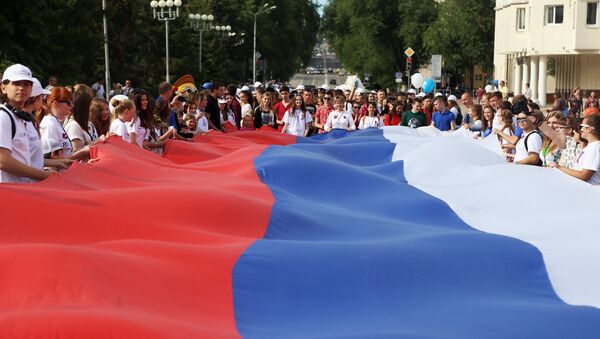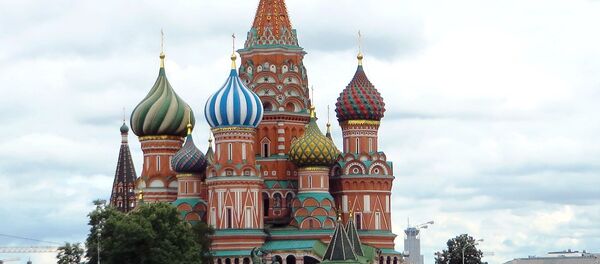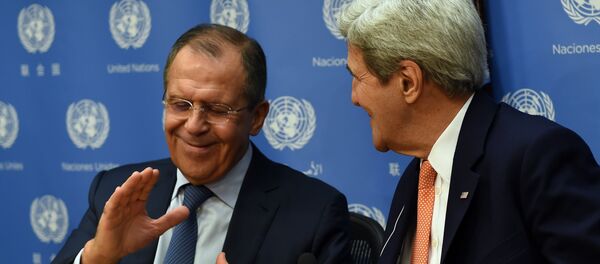Russia is the only country the Treccani dedicates an article to in its "World and Trends" section, which covers global regions and major issues such as migration, climate change, transport, the jihadist threat, as well as the WTO.
Serena Giusti, author of the 10-page long article, said:
"Russian raids in Syria, Moscow's first ever military campaign outside the post-Soviet space, mark Russia's transition from regional to multi-regional power, and hence, global power."
The article provides readers with historical perspective, and in doing so, steers away from — and indirectly debunks — the most frequent claims made about today's Russia.
Unlike other nations, Russia was from the beginning multi-polar in its approach, aiming to join European powers, rather than take over from them. The Kremlin, referring to western countries as "our partners," is an illustration of that.
Far from being aggressive, today's Russia has changed from being "an ideology-driven, militaristic superpower," the article explains, "to a pragmatic, mercantile power, assertive but inclined to cooperate.
"Russian foreign policy now combines traditional diplomacy with instruments of soft power… economical tools, such as direct investments, energy and financial resources, as well as cultural ones, such as language and media.
"Military power remains important, but Moscow sees it rather as an 'extrema ratio,' to be used only when all other means have been proven vain."
In Georgia in 2008, and in Ukraine in 2014, Russia reacted to threats to minorities and to foreign-instigated political chaos next to her borders. Crimea was "an important geopolitical victory, but border changes will remain an exception."
A map hardly found on mainstream media shows NATO's expansion in the East, and the number of the drills NATO carried in each country in 2015 alone.
A graph, titled "a disproportionate comparison," shows the ratio between the military expenditure of NATO and that of Russia: 10 to 1.
Another map, "Russia activism in the Middle East and Central Asia," shows readers the nature and scope of the country's diplomatic and economic relations with this key part of the world.
Having dealt with the memes of "aggressive" and "isolated" Russia — and of "cash-stripped NATO" — the article touches upon President Putin's popularity.
"Economic betterment, especially during his first two terms, the order ('poryadok'), the political stability ('preyemstvennost' poltiki'), restored by Putin — sometimes even recurring to the use of force, like during the Second Chechen War (1999-2009) — create consensus around the leadership."
Although the establishment of a fully working capitalist economy remains paramount, "the openings of Russia towards the exterior, see WTO accession, should not put the security and stability of the country at risk," the article explains.
"And precisely to protect the country's political peculiarity, the Russian leadership disputes the alleged universality of the western political model, and counters it with the full legitimacy of a democracy declined with the concept of sovereignty."
Confidence in #Putin is low across Europe, but men more confident than women in many nations https://t.co/UvZfxLPGEQ pic.twitter.com/APAxiGR5To
— PewResearch Global (@pewglobal) July 3, 2016
Sovereign democracy as a new political model is itself a tool of Russia's newly found soft power. It provides non-western countries with a model more respondent to their needs and circumstances.
"To Arab and Iranian eyes," explains Ugo Tramballi, foreign correspondent for Il Sole 24 Ore, Italy's financial paper "the asphyxiating American political correctness, at home and abroad, is that which makes Russia a more reliable partner in the fight against terrorism."
The drive to multi-polarity abroad, the establishment of a sovereign democracy at home, alongside a mix of diplomatic and military power, are thus the ingredients driving Russia's comeback as global player.






